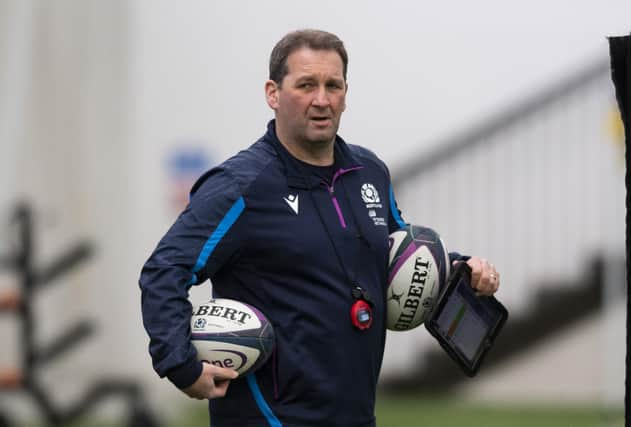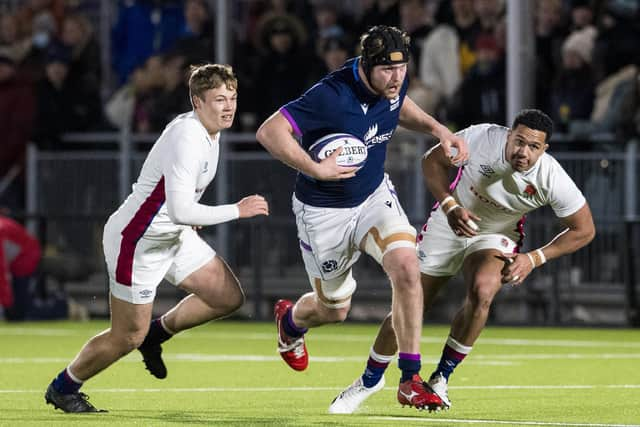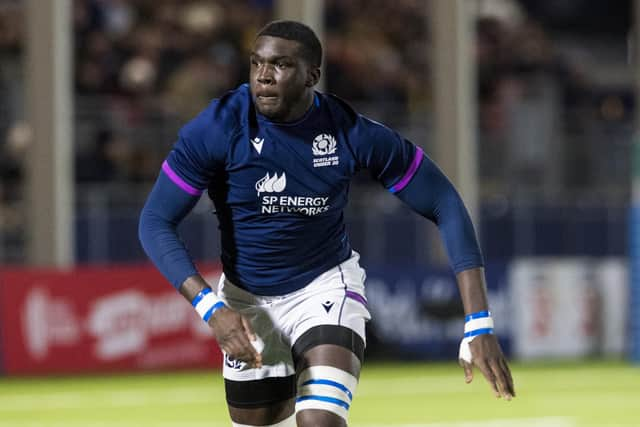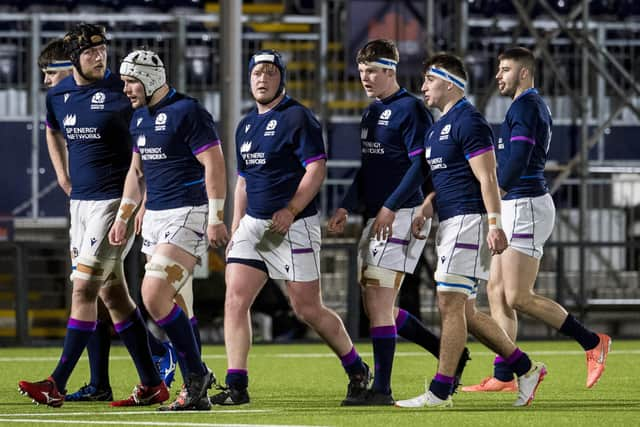Scotland Under-20s: The impact of Covid, reliance on SQ players, conditioning issues but why better days are ahead


They beat England and Italy but lost to Wales, France and Ireland. The women lost all five games and so too did the men’s under-20s, for the second year in a row.
While there is a sense that the senior men underachieved and the women succeeded in their main goal of the season which was qualifying for the Rugby World Cup, the plight of the U-20s is a cause for concern.
Advertisement
Hide AdAdvertisement
Hide AdKenny Murray took over from Sean Lineen as Scotland U20 coach in January, a job that is part of his wider brief as head of player transition, or, as he describes it, providing a pipeline for talent to flow through.
It’s a new role and one which he sought to explain this week ahead of the Six Nations Under-20 Summer Series, an eight-team tournament that kicks off later this month and features South Africa and Georgia as well as the six titular protagonists.
Covid wasn’t kind to Scotland’s young players, many of whom went for over a year without playing any meaningful rugby as the game below elite level was placed in cold storage. For many, their return to action came in the U-20 Six Nations, a tough baptism, especially for the callow ones emerging from the under-18 age group.
Murray describes international rugby at U-20 level as “bloody hard” and says it is vital that a robust talent identification programme is in place so that the very best are coming through the pipeline. That involves nurturing the brightest native players but also scouring the globe for promising youngsters who are Scottish qualified (SQ) and he makes no apologies for picking players whose eligibility comes via their parents or grandparents.
“The SQ programme is massive for me,” said Murray. “I think we’ve got 10 or 11 boys in the U20 training group that are from SQ programmes and that’s not too dissimilar to what’s happened in the past.


“When I looked at the Ireland-Scotland full international I think I counted eight or nine guys in the Scotland team who hadn’t come through the domestic programme, so that highlights the importance of the SQ programme for us as a country.
“There are big challenges in our domestic game, as everyone knows. Ideally we’d bring our whole Scotland playing group through the domestic system but at the moment we’re not quite there.
“My mindset and aim is not to look at the SQ programme as an easy option to get players. I want to develop the best players in our country and bring them through but the SQ programme is there to support that and we need it at the moment.”


Advertisement
Hide AdAdvertisement
Hide AdThe full Scotland side’s reliance on the residency rule and in particular the tendency to import from South Africa has attracted criticism and accusations that it stymies the development of homegrown players. For Murray, the stark reality is that many of the young Scots in his squad were ill equipped for the rigours of under-20 internationals.
“I don’t believe we’re maybe as conditioned – either physically or in terms of game intensity – as we need to be to play under-20 rugby,” he said.
“Under-20 rugby is bloody hard. Anybody who watched the U-20s in the Six Nations or watches the summer tournament should see that. You only have to look at England. Henry Arundell and Will Joseph – they’ve both been picked from the England U-20 Six Nations group and will be touring with [senior] England in the summer. That’s the standard we’re having to operate at.
“And that’s the thing that frustrates me at times. We’ve still got a lot of folk who believe players can come from National League rugby and go straight into the U-20s and compete against Harry Arundell. Really? Arundell has scored one of the best tries we’ve seen for many years for London Irish – that’s the level we’re playing at.


“So our players who come through need to be fit for purpose, well conditioned, developed in terms of their rugby skills and decision-making skills and have an ability to play in pressure environments. So a big challenge for me is making sure the environment we’re bringing the boys into is challenging and developmental. And that includes the club environment at Super6 and environments we’re delivering from a Scottish Rugby perspective.”
The trick for Murray and Jim Mallinder, Scottish Rugby’s director of high performance, is convincing the disparate elements that playing young players is in their best interests. That can be difficult when Edinburgh and Glasgow Warriors are chasing wins in the URC or even at Super6 level. Murray, the former Ayr and Glasgow Warriors coach, would like to see a more “player centred” approach.
“Things like making sure guys who are on the fringes of pro teams aren’t in as 24th man all the time, they are actually getting relevant game time. At the moment I’m still feeling that there are guys who are not getting enough game time to prepare them.
“Then there’s that alignment between ourselves, the Super6 coaches, the clubs, the academies – there are areas within that that we’ve got to improve as well.”
Advertisement
Hide AdAdvertisement
Hide AdMurray added: “A lot of the guys who are playing for England, or even France [at U-20 level], are playing in the English Premiership or Top 14. We need our guys playing at the top level. Some of our guys have played a bit of pro rugby this year but the majority haven’t. So they’ve been playing Super6.
“Jim [Mallinder] has made steps forward in Super6. Thirty-three guys of national interest to me were involved in the Super6 Sprint which is a big step forward from last year.
“It’s really important we get guys playing at a high level because the jump from club level to U-20s is really big.”
Comments
Want to join the conversation? Please or to comment on this article.

